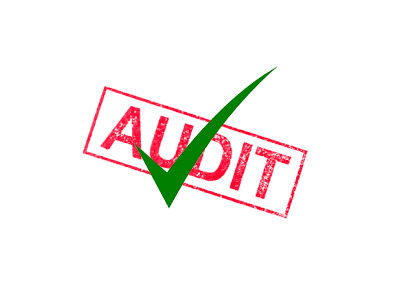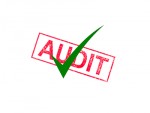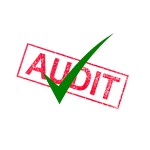An increasing number of food testing laboratories are seeking accreditation to the ISO/IEC 17025:2005 standard. This growth is chiefly due to regulatory implications, customer requirements, and trade organization recommendations and is seen across laboratory segments: third-party contract laboratories, private in-house laboratories, and government laboratories. ISO 17025 is the most common standard in the food testing industry and sets the guideline for “Laboratories Performing Microbiological and Chemical Analysis of Food and Pharmaceuticals”. Accreditation is known generally as a third-party attestation related to a laboratory, which conveys formal demonstration of competency that implies a reliable and consistent level of quality across an operation for a well-defined parameter of tests, often referred to as the “Field of Testing”. There are several qualified organizations that accredit laboratories to the standard; these organizations are referred to as Accrediting Bodies and are responsible for assessing facilities for conformity to a given ISO standard.
Audit Preparation Guidance
Initial Accreditation: Considerations & Preparation
When a laboratory initially entertains applying for accreditation, several factors should be considered. The cost and time commitment required to become initially conformant, and the on-going resources required to maintain conformity should be thoroughly examined in an overall benefit analysis prior to applying for accreditation. Management should be fully aware of the investment and perpetual commitment of becoming an accredited facility. Accrediting Bodies (ABs) provide resources and literature that can help guide laboratories through the initial audit-preparation phase. However, creating the systematic application of these guidelines that balances the quality and operational objectives of the organization are unique from laboratory to laboratory. Simply put: There is no cookie-cutter approach to accreditation.
Consultant Considerations
Q Laboratories in Cincinnati, OH first embarked on the path to ISO 17025 accreditation in 2009. James Agin, director of regulatory compliance at Q Laboratories and member of the A2LA Laboratory Accreditation Council took the lead on preparing for the initial assessment eight years ago. Q Laboratories was initially unfamiliar with the process, so they hired a consultant who was also an assessor to walk them through the process. “We took about four to five months with a consultant,” says Agin,. “In addition to creating the necessary systems, we gathered the troops and did a deep training on what ISO 17025 is, why we were pursuing it, and why it was important to our business.” The Q Laboratory team created a deep sense of ownership during the education and training process from the supervisors to the bench analysts, which they credit to their ongoing success years later. Erin Crowley, chief scientific officer at Q Laboratories suggests new labs consider hiring a consultant to ease them through the process and get them audit-ready. “If you’re not accustomed to having certain systems in place, a consultant can provide clarity and help initiate processes,” says Crowley. “Having an open forum with an expert helped give our entire team confidence.”
A consultant can streamline the initial process and help avoid some of the pitfalls in creating a robust quality management system for the first time. Tim Osborne, senior director of training services at A2LA offers advice for organizations when vetting a consultant. “While certainly not required, a qualified consultant may be a good asset to have in your quiver,” says Osborne. “Look for industry references and pay close attention to involvement in the industry outside of its own laboratory. Does this person work for an accrediting body? What are the areas of analytical expertise? Does this person also provide training for an accrediting body? If so, it is likely the consultant will offer the quality of services you need to be successful.” It is important to note that assessors and consultants should be upfront with the accrediting body to avoid conflict of interest issues during the actual assessment. Impartiality is critical within the assessment process.
Application Process
Accrediting bodies publish their own “readiness” documents. Laboratories seeking accreditation should request an itemized guide that walks the organization through each phase of the process. The following is a general outline:
- Obtain copy of ISO standard (17025, 17065, 17020, etc.). Review any specific requirements relevant to your field; these are generally available in a checklist format allowing the laboratory to prepare through an internal audit process.
- Determine estimated costs with the accrediting body
- Obtain a copy of the accrediting body s assessor checklist. This usually has to be completed as part of application process
- Prepare the intended draft scope of accreditation (outlining, specific tests/test methods, calibration parameters/ranges, certification schemes)
- Implement the management system, and ensure personnel are aware and accept the content
- Perform an internal audit to verify compliance with the conformity assessment standard requirements, accrediting body requirements, your own management system requirements, and applicable technical requirements
- Perform a management review
- Foreign applicants may need to translate supporting application documents to English
- Identify one specific individual to be responsible for accreditation efforts and interactions with the accrediting body. Identify the “quality manager” who is in charge of the management system
- Obtain, prepare, and submit the application for accreditation to the accrediting body
Once the initial assessment is complete and the final response and corrections to any deficiencies is in, the laboratory will be reviewed and considered for accreditation through the accrediting body. When the decision is made in favor of accreditation, the laboratory will receive their accreditation certificate, which will correspond to a specific location and set of tests (commonly referred to as a Scope of Accreditation (“Scope”) for the Field of Testing (“FOT”) for which they were assessed). Depending on the accrediting body, the certificate may be valid for one to two years, and will require re-assessment and surveillance at defined frequencies. The laboratory is responsible to maintain conformance to the ISO 17025 standard in between assessments.
Continue to page 2 below.







